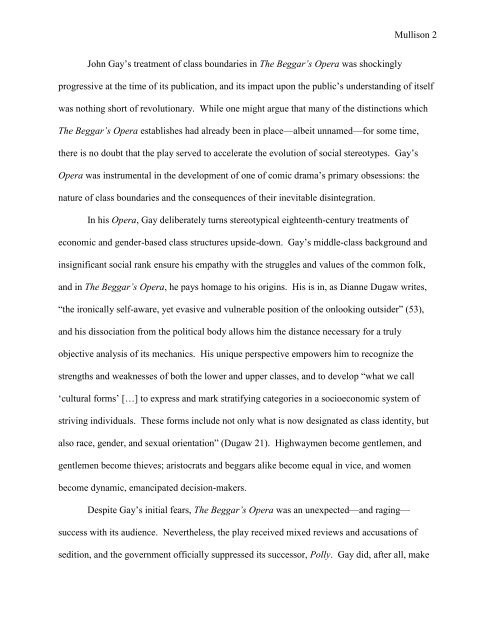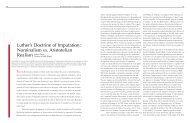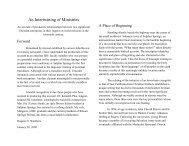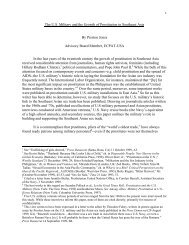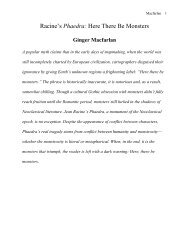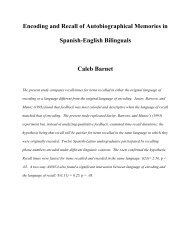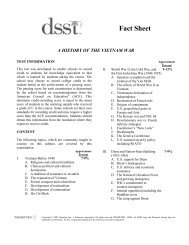Kendra Mullison - John Brown University
Kendra Mullison - John Brown University
Kendra Mullison - John Brown University
Create successful ePaper yourself
Turn your PDF publications into a flip-book with our unique Google optimized e-Paper software.
<strong>Mullison</strong> 2<strong>John</strong> Gay‟s treatment of class boundaries in The Beggar’s Opera was shockinglyprogressive at the time of its publication, and its impact upon the public‟s understanding of itselfwas nothing short of revolutionary. While one might argue that many of the distinctions whichThe Beggar’s Opera establishes had already been in place—albeit unnamed—for some time,there is no doubt that the play served to accelerate the evolution of social stereotypes. Gay‟sOpera was instrumental in the development of one of comic drama‟s primary obsessions: thenature of class boundaries and the consequences of their inevitable disintegration.In his Opera, Gay deliberately turns stereotypical eighteenth-century treatments ofeconomic and gender-based class structures upside-down. Gay‟s middle-class background andinsignificant social rank ensure his empathy with the struggles and values of the common folk,and in The Beggar’s Opera, he pays homage to his origins. His is in, as Dianne Dugaw writes,“the ironically self-aware, yet evasive and vulnerable position of the onlooking outsider” (53),and his dissociation from the political body allows him the distance necessary for a trulyobjective analysis of its mechanics. His unique perspective empowers him to recognize thestrengths and weaknesses of both the lower and upper classes, and to develop “what we call„cultural forms‟ […] to express and mark stratifying categories in a socioeconomic system ofstriving individuals. These forms include not only what is now designated as class identity, butalso race, gender, and sexual orientation” (Dugaw 21). Highwaymen become gentlemen, andgentlemen become thieves; aristocrats and beggars alike become equal in vice, and womenbecome dynamic, emancipated decision-makers.Despite Gay‟s initial fears, The Beggar’s Opera was an unexpected—and raging—success with its audience. Nevertheless, the play received mixed reviews and accusations ofsedition, and the government officially suppressed its successor, Polly. Gay did, after all, make


